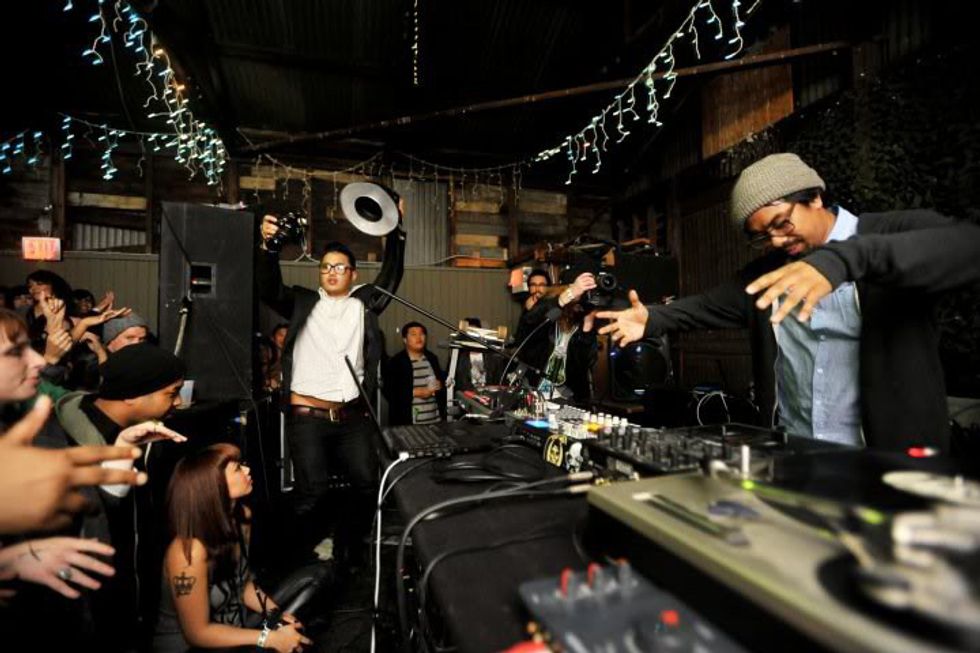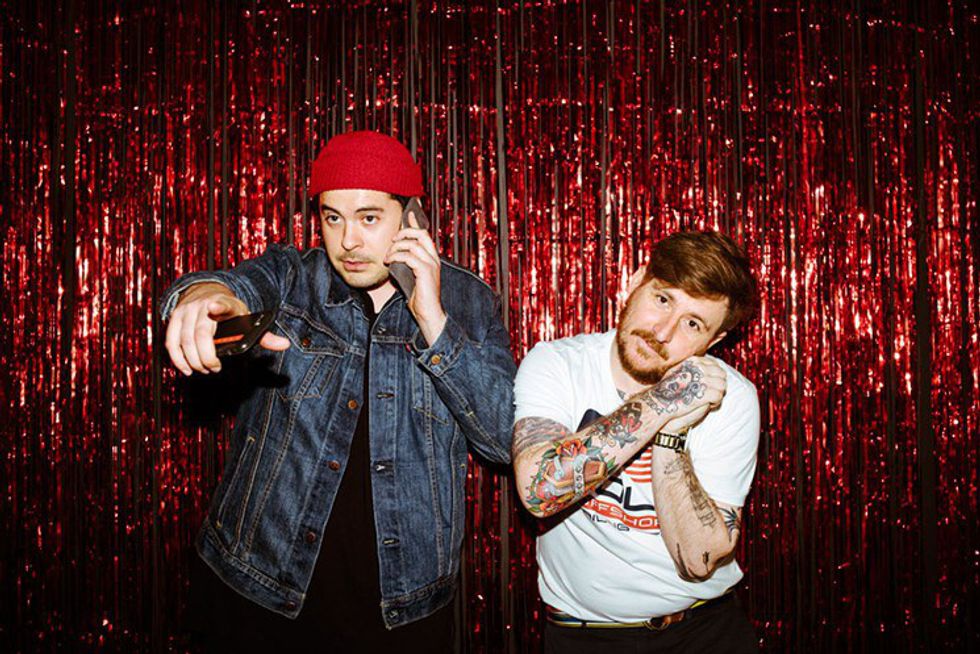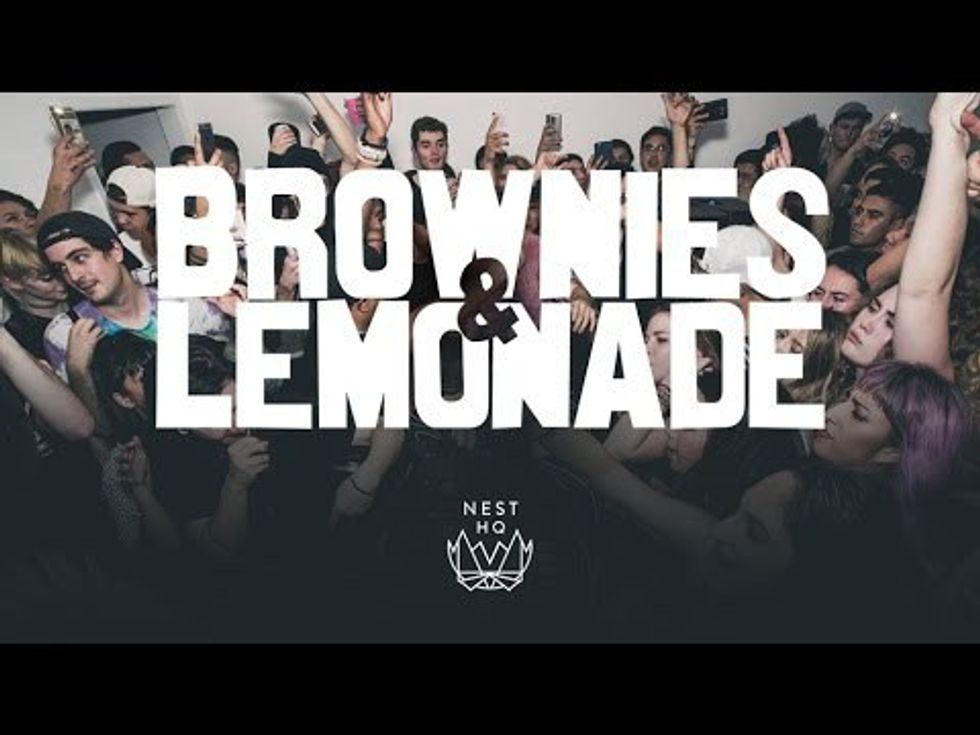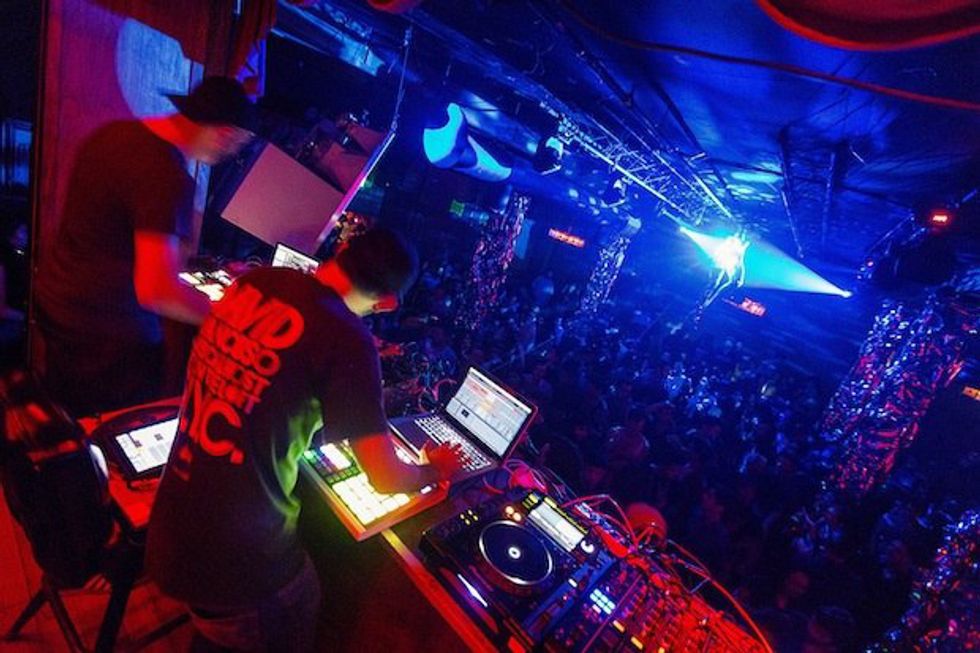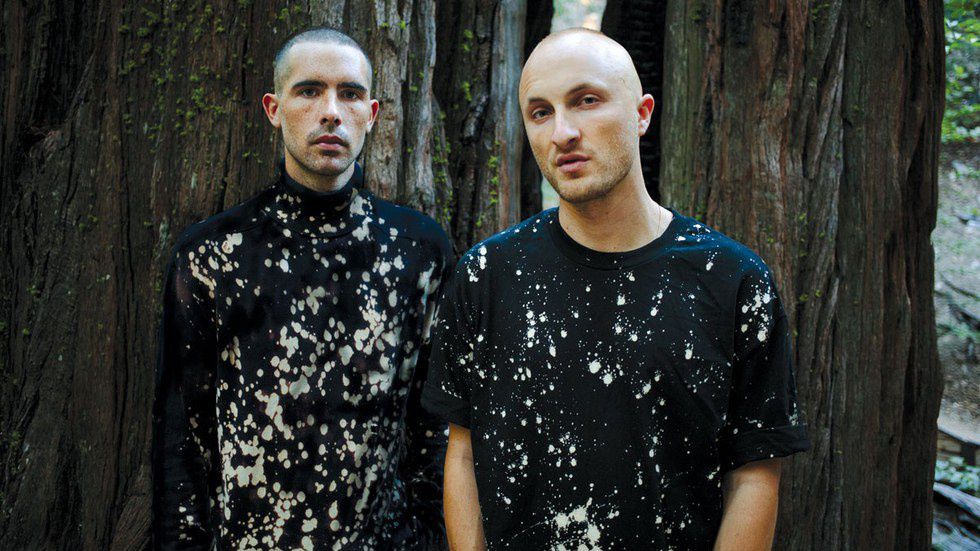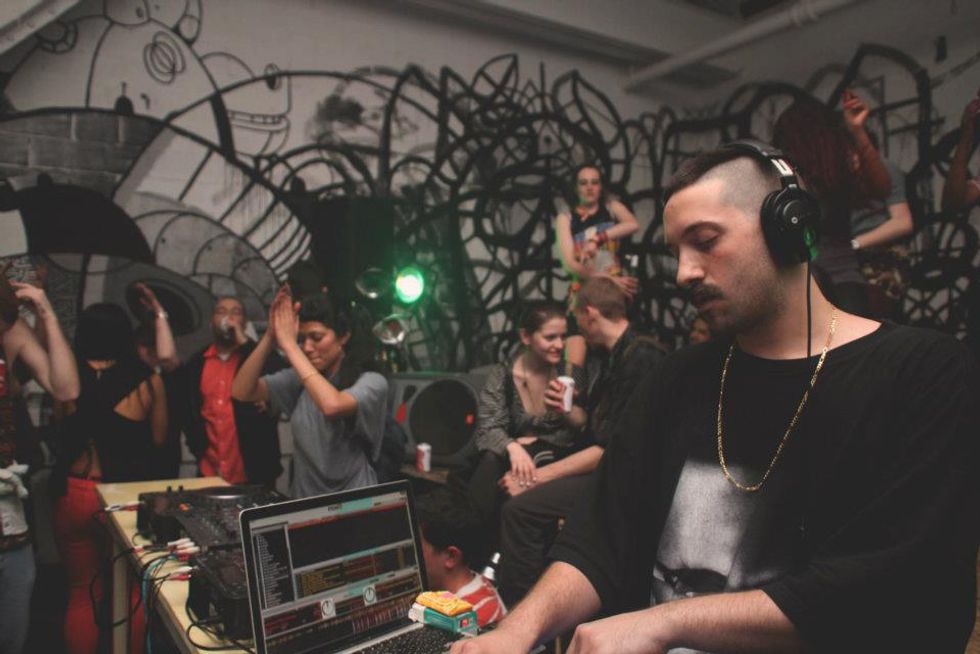When it comes to underground music and parties, Los Angeles is the place to be.
The underground scene has been around for decades, but in more recent years LA, along with other major cities, has become a hub for innovative music and has created a unique culture of its own.
What separates the underground scene from traditional LA night clubs? The music comes first.
For real music lovers, mainstream nightlife in LA makes us cringe. Let's be honest, the same 20 songs play in nearly every club and that can get quite boring if you ask me. In my opinion, these mainstream clubs often times create a stigma of competition, where the majority of people seem to only care about social climbing and bottle-service, rather than music and culture. I could go on and on about my personal dislike for clubs like "1OAK" and "Bootsy Bellows" where you basically have to fit a certain mold to even get it, but everyone is different. If you aren't necessarily a music snob and simply just want to get out of the house every once in a while that is ok too; you will most likely still have a good time at any club in LA.
The underground scene however, has created a major movement in music, fashion, and culture whether you recognize it or not. The reason for this influence comes from the people who attend these shows and events; the scene brings people together from all walks of life through both music and fashion. The underground life creates a non-judgmental environment allowing for creative growth in so many aspects, something you may not be able to find anywhere else.
Whether it is experimental, house, techno, drum and bass, trap, rap, or hip-hop LA is home to various underground shows and parties. While some of these events may be hard to find (hence the word "underground") and may require some sifting through Twitter and Facebook, you'd be surprised by how many underground events you discover take place in LA.
Low End Theory
Low End Theory, at the Airliner in Lincoln Heights, is exceptionally different from any other club or venue in Los Angeles; it is considered to be a hidden gem by many Los Angeles locals. The club provides a “lowkey” atmosphere and ambiance that sets it apart from mainstream clubs and bars found all around Los Angeles. Instead of focusing on the party aspect of music, like many clubs and concerts in the area do, the music and art itself comes first here.
Low End Theory was founded by the head of Alpha Pup Records and producer, Daddy Kev. By starting Low End Theory, he intended to form the epicenter of LA’s instrumental hip-hop scene.
The club has become a major influence in the “beat music” genre as well as hip-hop and rap. The venue has become a launchpad for artists such as The Glitch Mob, Nosaj Thing, Flying Lotus, Daedelus, and others at the Brainfeeder label. The club is also home to resident DJs including founder Daddy Kev, The Gaslamp Killer, DJ Nobody, and D-Styles.
Ham on Everything
Ham on Everything is personally one of my favorite events around, something I've been attending for years now and have been lucky enough to see grow. The shows are orchestrated by 35-year-old Adam Weiss and 30-year-old David Romo.
Ham on Everything doesn't fit one particular mold or genre, they pretty much do it all and on a regular basis. The list of headliners who have performed at Ham on Everything events goes on and on including artists such as Waka Flocka, Soulja Boy, Playboi Carti, and Rich the Kid. In an interview with LA Weekly, Romo describes his mindset when organizing shows.
Romo said, "We’ll throw rap shows for two months, then be like, ‘I kinda wanna do a weird rave thing.’ We’ve trained the kids to just be down. They trust us."
Ham on Everything has successfully set itself apart from the pretentious LA club life; Weiss and Romo pride themselves on the originality their shows have maintained over the years.
“People try to throw similar parties and their attitudes are like, ‘We’re gonna be the kings of the L.A. scene.’ That’s corny.People feel connected to HAM. If you don’t come from a genuine place, it’s not gonna work out for you,” Weiss said in an interview with LA Weekly.
Information about the events can be found on Ham on Everything's Twitter or Facebook pages. It typically works through RSVP and the location and details are emailed to everyone the day of the event.
Brownies and Lemonade
Brownies and Lemonade has easily become one of the hottest electronic music events crew in LA. The events have created a massive, as well as genuine, fan-base in regards to the underground music scene. I recently discovered Brownies and Lemonade and was surprised that I hadn't heard about it sooner considering the artists that often perform at their shows.
They are known for supporting up-and-coming artists as well as orchestrating shows with some major headliners including Alison Wonderland, Diplo, Sam Gellaitry, Sweater Beats, and various artists from the Soulection label.
Similar to the Ham on Everything, you can find more information about Brownies and Lemonade through their social media platforms; I highly recommend you check them out!
A Club Called Rhonda
A club called Rhonda is probably one of the most diverse and liberating parties around, labeled as "LA's Pansexual Party Palace" by Thump Vice. It is held once a month at the Los Globos club in Silver Lake. Those who attend are often dressed in extravagant and creative outfits.
The club remains grounded in it's inspiration from disco, techno and house, but has further transcended into an epicenter for creatives, trendsetters, and innovators.
A Club Called Rhonda can simply be described as a melting pot and is worth taking a look at.
Body High and Fade to Mind
Body High and Fade to Mind are both LA based record labels with crisscrossing genres in electronic music. Body High was founded by DJs/producers Jerome Potter (Jerome LOL) and Sam Griesemer (Samo Sound Boy) who represent artists such as DJ Sliink, Todd Edwards, and Floyd Campbell. Fade to Mind is run by Ezra Rubin and Will and Will Boston, representing experimental electronic artists like Kingdom, Nguzunguzu, and Total Freedom.
By tapping into the experimental, often eerie, side of electronic club music, the two labels have branded themselves and their artists as influential assets to the underground music scene and culture. In an interview with Fact Magazine, Jerome Potter from Body High dials in on the roots of the labels inspiration.
Potter explains, "With Body High, we take a lot of inspiration from dance music history... I don't find myself listening to new music anymore. There's good new music, but there is such great old music that hasn't been discovered. As you get older, you have to put dance music in the context of the history, where it's coming from, and not be ignorant of the culture. Appreciation is really important."
Body High and Fade to Mind regularly throw shows and parties whether it be at a warehouse or art museum. I recommend following their Facebook pages for updates on any upcoming events and where to RSVP.
I highly encourage you to step out of your comfort zone and see what LA's underground life has to offer you!




